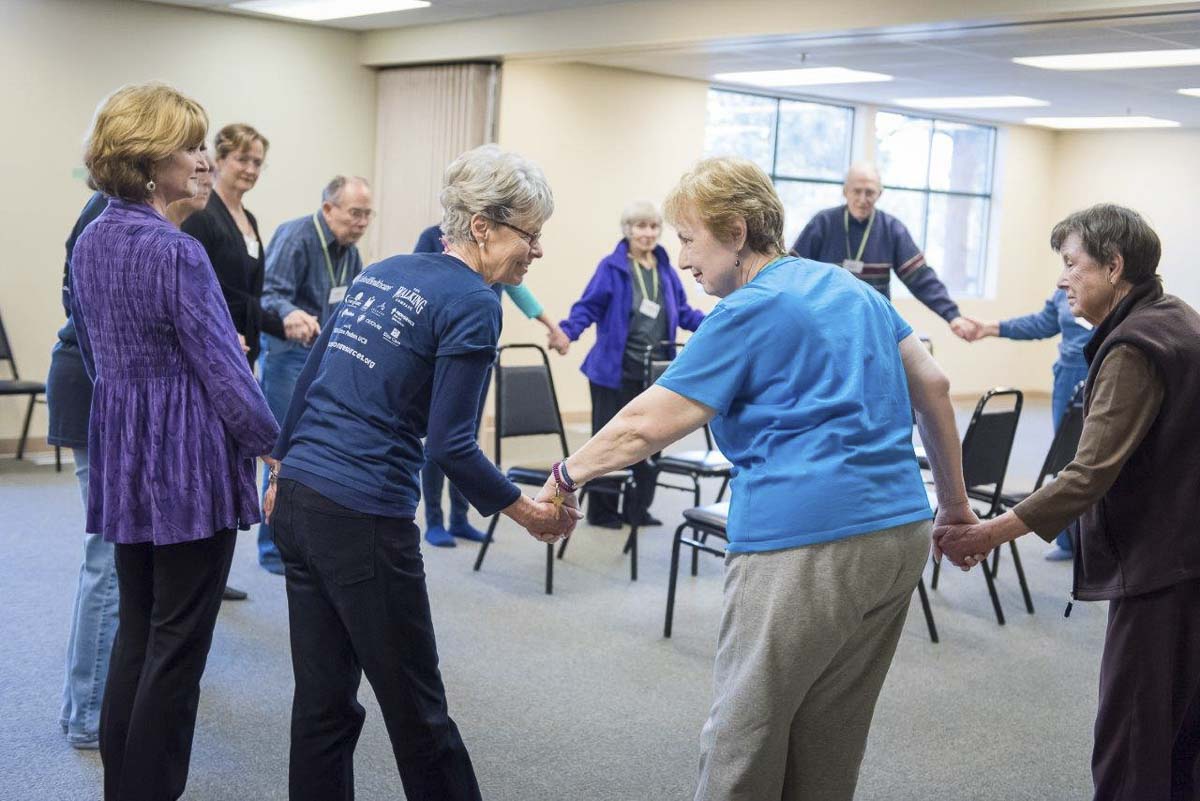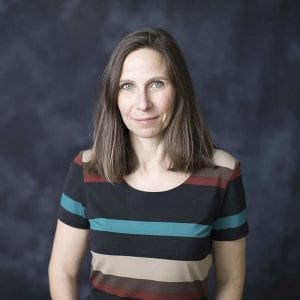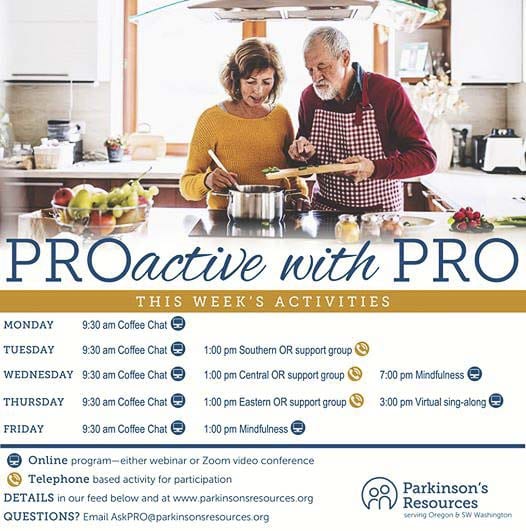Parkinson’s Resources of Oregon is finding creative ways to connect and help their patients with a unique illness
CLARK COUNTY — For 40 years, people with Parkinson’s Disease living across the Pacific Northwest have had an ally and friend in Parkinson’s Resources of Oregon (PRO). In the face of COVID-19, they still do.

“Everybody knows how to use their telephone,” said PRO Executive Director Holly Chaimov. “Taking it old school, to a telephone, and making sure that we have support groups that are available on the phone, that there’s counseling available on the phone, that our phones are being answered by live humans … All of that is really important in providing continuity and service to our clients.”
PRO is an organization based in Beaverton, that operates all over the region, including southwest Washington, working with those living with Parkinson’s as well as those caring for them. For decades they have championed this cause with partners like Legacy Medical Group and The Community Foundation of Southwest Washington.
In the last few months, they have been faced with a daunting change in daily routine, much like the rest of the world. With many of their patients elderly and living alone, or having to quarantine, they foresaw the struggle isolation would likely cause.

“Many people have really robust family and community support systems,” Chaimov said. “So part of this outreach effort is knowing and being able to tag and identify those that we do need to check back with and those that we can make some assumptions safely, that they’ve got a community that’s already working to support them.”
For many, Parkinson’s will bring to mind Michael J. Fox, his foundation and the tell-tale tremors that are a symptom of the disease. What many don’t know is that the disease has a plethora of additional symptoms that can add to or cause depression, anxiety and cognitive issues.
Add into the mix not being able to see friends or family, and the result can be devastating.
“Doctors always recommend exercise for everybody, but with Parkinson’s exercise is really part of the medical treatment. Exercise is extremely important for people with Parkinson’s disease,” said Dr. Joseph Quinn, M.D., OHSU Professor of Neurology and PRO board member. “If they’re not able to exercise, they lose ground much more quickly and suffer some other symptoms. The inability to go to group exercise programs, go to the rec-centers and go to boxing classes is really especially bad for people with Parkinson’s disease.”

Quinn went on to say, however, that he is very impressed and thankful that such poor outcomes have not been seen by PRO in the recent days of isolation. He encouraged patients to exercise at home, but also to seek out new and creative ways to connect through videos and phone calls with those in their exercise groups.
Early into the period of adjustment, Chaimov and her team noticed something: while the world moves ever more online and communicates via video calls and websites, many of those in the Parkinson’s demographic are not tech-savvy enough for the switch. They would be left behind.
Cue the phone calls. Thousands of them.
In the month of April alone, the organization’s small staff working from home have spoken with close to 1,000 Parkinson’s patients in the region. At any given time, PRO serves around 13,000 households; that’s caregivers and patients.
“We really did not want to leave a population behind,” Chaimov said. “This idea of everything going virtual was an incomplete story for us. So we shifted. All of our staff are working remotely now, and regardless of the role a person plays in our organization, we’re all playing a part in a very coordinated and strategic outreach effort. We are, one by one, placing phone calls where we can’t reach someone by phone, trying to connect with other family and making outreach calls to make sure that people are doing okay at home.”
Chaimov shared a story of speaking with an elderly woman with Parkinson’s on the phone not too long ago. The woman had been going to a Parkinson’s exercise group forever and it was very important to her. Chaimov told her over the phone she would send her a link to videos of exercises so she would not fall behind on them without her class.
The only problem? The woman only had a VHS player.
“There was no computer for her to play this on,” Chaimov said. “So I did kind of sit there for a minute trying to figure this out, and then realized that we actually still have some old VHS tapes of exercise classes that are part of our lending library. Because at that point, we were still in our office, I was able to pop one in the mail to her.”
That moment, lovely and resolved as it maybe, was also a wake up call, Chaimov said. Many Parkinson’s patients were going to need phone calls and community more than ever. Another member of the PRO team shared a story of speaking with a patient for over an hour, just because they needed to talk to a person.
“Part of it is the anxiety. A need for social contact is uniform among the population but it becomes exaggerated in our patients with Parkinson’s disease because they are in a situation that aggravates the degree of social isolation due to their limited mobility and trouble engaging in some other social activities,” Quinn said. “I think these phone calls are doing a world of good for them.”
Thanks to the increased tele-support, phone calls, medication delivery systems, and community outreach, PRO has not had any patients suffer to the point of great depression or worsening of their illness. As a result, The Community Foundation of Southwest Washington has given PRO $25,000 to use for helping caregivers of those with Parkinson’s during this time.
“Family caregivers are often put in a position of providing care for someone whose physical needs are changing over time. And yet, nobody ever trained them how to provide this level of care and support,” Chaimov said. “We have respite funds available for family caregivers who find that they just absolutely need a break and they need to get away and the safest way to do that is to hire somebody to stay with their loved one. It’s particularly challenging right now because people don’t feel safe bringing a non-family member into their home because of the Coronavirus concerns.”
Perhaps another added benefit of the new online way of doing things is increased communication infrastructure, so to speak, for rural communities. Chaimov and Quinn both relayed excitement at the expansion of critical services for rural Parkinson’s patients who otherwise would have to travel long distances to see a neurologist.
If you would like to contact PRO for more information on their efforts during COVID-19 or reachout for someone you know, you can call toll free at 1 (800) 426 6806 or send an online message here. PRO is also on Facebook.




